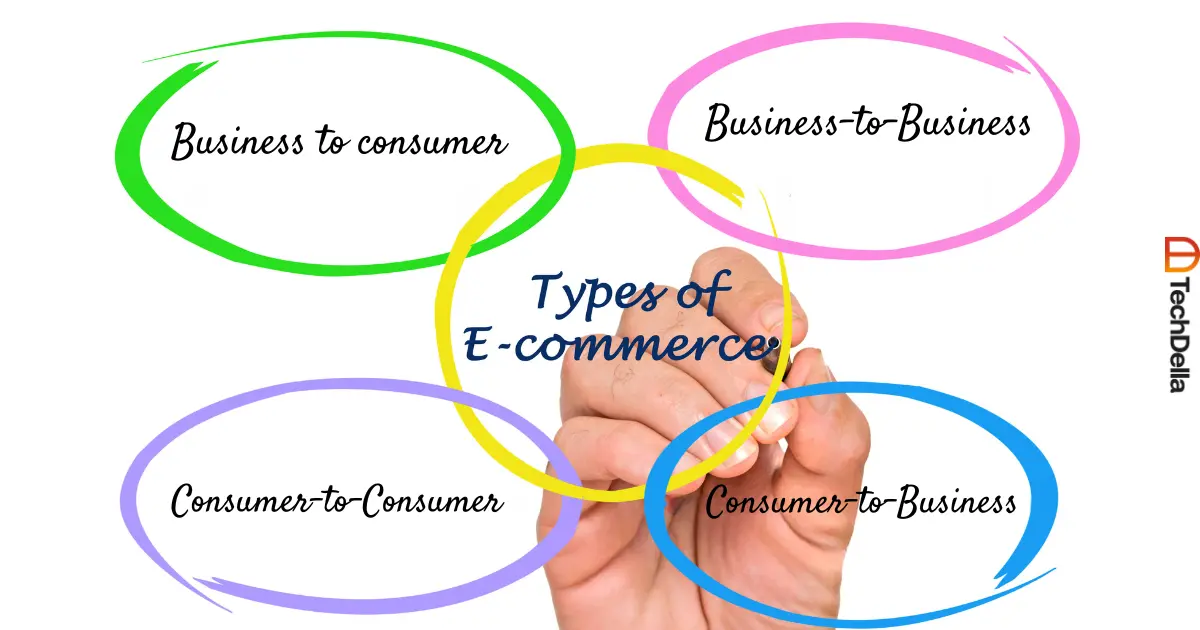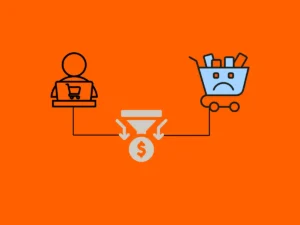What are the best eCommerce business examples? Good question!
Did you know thateCommerce sales will exceed 4.3 trillion by 2025? That’s a staggering figure, indicative of the immense growth and potential within the online retail space.
In this article, we will look at the 10 best eCommerce business examples. We will explore some of the most successful companies in this field.
New startups are changing old industries. Large, established companies are leading online shopping.
These businesses have embraced the digital age. They have also succeeded in the eCommerce world.
If you are considering starting an eCommerce business or probably already have one, then you can take a page out of the success book of these top eCommerce business examples. Let’s take a closer look at them.
What are eCommerce Business Examples?
eCommerce business examples are businesses that sell products and services using the internet. Examples are Amazon, Dollar Shave Club, Warby Parker, eBay, Craiglist, Wayfair, Amazon, Jiji, Jumia, Leesa, and so many others.
Also, eCommerce business examples like website are similar to big magical stores. You can buy many things online without leaving your house. Just imagine finding toys, clothes, electronics, food, and even things you didn’t know you wanted. You can do this with just a few clicks on your computer or phone.
List of Successful eCommerce Companies
- Amazon
- Alibaba
- eBay
- Leesa
- Dollar Shave Club
- Warby Parker
- Jumia
- Shopify
- Best Buy
- Etsy
- Craiglist
- Wayfair
10 Examples of eCommerce Businesses
1. Amazon
Amazon is one of the largest thriving business-to-consumer B2C and consumer-to-consumer C2C eCommerce business examples in the world. Jeff Bezos founded it in 1994 as an online bookstore. Since then, it has grown to sell many things. Now, it offers clothing, housewares, power tools, food and drinks, and electronics.
The company launched its business with an e-commerce-based model of online sales and product delivery.
You can find them in Seattle, Washington (USA). Amazon has become one of the first American eCommerce businesses to sell goods online.
Amazon has different sections for best sellers, deals, music, video, home, streaming, health, and new products. They provide amazing Platforms for Buyers and Sellers to interact and do Business. Amazon only took 4 years to cross 10 billion in Sales.
Selling on Amazon requires creating a seller account, listing products, and shipping directly to the consumer.
2. Alibaba
Alibaba was founded in 1999. It is a Chinese business-to-business B2B eCommerce business examples. In recent years, it has expanded into Africa. However, Alibaba focuses on services like eCommerce, search engines, customer service, and technological development.
- You can explore millions of business offerings. These include jewelry, vehicle parts, and accessories. You can also find furniture, shoes, and bags.
- Beauty products, fabrics, and raw materials exist. You can discover chemicals, metals, and alloys, too.
- Agriculture, pet supplies, electronic components, food, and beverages are also available. Just name it!
- Assured quality and transactions from verified suppliers, with orders protected from payment to delivery.
- You can search and filter orders from millions of product and supplier offerings to find the one that matches your business.
- You get curated benefits, such as exclusive discounts, enhanced protection, and extra support, to help grow your business.
Alibaba has an online website with a smartphone application. Alibaba verifies every seller. This helps protect the investments of buyers who often have a limited budget.
Alibaba is one of the top business-to-business ecommerce business examples, helping small businesses buy in bulk.
3. eBay
eBay is an American multinational eCommerce company based in San Jose, California. It remains one of the earliest and most flexible eCommerce business examples in the world.
Pierre Omidyar founded eBay in September 1995. It has 134 million yearly active buyers worldwide and handled $74 billion in transactions in 2022, 49% of which was in the United States. In 2022, the company had a take rate (revenue as a percentage of volume) of 13.25%. (Source:Wikipedia).
People, companies, and governments use eBay to buy and sell almost any legal item.
The eBay service is accessible via websites and mobile apps. Software developers can create applications that integrate with eBay through the eBay API. Merchants can also earn commissions from affiliate marketing programs by eBay.
eBay is a strong consumer-to-business C2B example, where people and small businesses sell their goods to companies or other consumers.
4. Leesa
Leesa is an online mattress B2C eCommerce company with a mission to help people sleep better.
Launched in 2014, Leesa sells mattresses and bedding essentials online. David Wolfe and Jamie Diamonstein founded it.
The main idea of this business model is to help people see how important sleep is. Getting enough sleep can boost productivity and improve quality of life.
- They are so confident in its product that they offer a 100-night free trial to mattress buyers.
- They rely on word-of-mouth advertising and don’t spend their marketing budget on Ads.
Lessa has anaffiliate marketing program that rewards customers for referring others to buy their products.
5. Dollar Shave Club
Dollar Shave Club is an American company located in Venice California. It was founded in 2011 by Michael Dubin and Mark Levine, Dollar Shave Club is one of the most successful subscription eCommerce businesses.
Dollar Shave Club is one of the best subscription models in eCommerce business examples. Members subscribe to a box every two months containing all their shaving and grooming essentials.
- Its members subscribe to a box every two months containing all their shaving and grooming essentials.
- You begin by buying a reasonably priced handle for a razor and then add packets of blades to your regular box.
- Today, you can choose from many items for your bi-monthly box. You can select toiletries, shaving tools, hair products, colognes, and even toothpaste.
In under five years of operation, Unilever bought the company for 1 billion dollars. With its direct-to-consumer approach, Dollar Shave Club is a top example of an eCommerce business.
6. Warby Parker
Warby Parker is an American online prescription eyewear retailer in New York City. It was founded in 2010 by Neil Blumenthal, Andrew Hunt, David Gilboa, and Jeffrey Raider. At that time, prescription glasses, sunglasses, and contacts were expensive.
They source their raw materials directly from manufacturers to offer cheaper products. They custom-cut and polish the edges of the lenses, treating them with anti-reflective and scratch-resistant coatings.
Warby Parker has standard impact-resistant Polycarbonate lenses that block 100% of UVA and UVB rays.
Users get numerous incentives like;
- Free shipping
- Free virtual and home try-on services
- And a generous returns policy
7. Jumia
Jumiais one of the largest eCommerce websites in Nigeria, serving small businesses and large retailers alike. It’s a leading African marketplace and one of the top eCommerce business examples operating on the continent.
It was launched in 2012 in Nigeria. This successful eCommerce business has expanded to over 23 African countries. It attracts more than 32 million visitors each month. People buy everything from fashion to phones, groceries, and home goods.
It has recently expanded into integrated logistics. This helps with the easy and reliable delivery of goods. It also includes hotel and travel booking, food delivery, and digital payment services.
People call Jumia “the Amazon of Africa.” It has a large presence across the continent. Jumia also provides many services.
Jumia has added many popular eCommerce features to its marketplace. These are some of the offers available:
– “Black Friday” sales
– A free shipping program called “Jumia Prime”
– A business purchasing membership
– Direct buying from overseas
8. Shopify
Shopify is one of the best eCommerce platforms. It helps anyone sell online, in a physical store, or both. The platform offers a professional online storefront, payment solutions, and a POS application to power retail sales.
- Shopify has an easy setup
- Mobile friendly
- Good performance and speed
- Easy and reliable payment gateway e.gPayPal
- Has apps that are customer-friendly and add features to your store’s visuality.
9. Best Buy
Best Buy is an American multinational consumer electronics and appliances retailer, headquartered in Richfield, Minnesota.
However, Best Buy provides B2B and B2B2C solutions. They make many different products. These include cell phone cases, computers, smartphones, televisions, audio equipment, and home appliances.
It buys these private label products from about 140 factories, mostly in China. It makes a profit by selling them to customers.
Best Buy has become a leading brand. It serves as one of the few eCommerce business examples that successfully transitioned from brick-and-mortar to digital without losing its identity. It has many physical stores in the United States, Canada, and Mexico.
10. Etsy
Another popular one among the eCommerce business examples is Etsy. It is a marketplace for handmade or vintage products and unique factory-made items. The platform has many unique items. You can find art, clothing, accessories, food, and even psychic readings.
Robert Kalin, Chris Maguire, and Haim Schoppik founded Esty in 2005. They created the website to help independent artists and creators find e-commerce options.
- Etsy has secure and multiple payment options such as credit cards, debit cards, and Etsy gift cards.
- Another unique aspect of Etsy is the personal shopping experience. You can chat with sellers, request custom items, and feel like you’re part of a creative community.
Types of eCommerce Businesses
There are several types of eCommerce business examples and eCommerce business models.

Here are the most popular ones:
1. Business-to-Consumer
In the B2C model, a business sells products or services to consumers. This includes eCommerce business examples like Amazon and Walmart, where a business sells directly to consumers. This is a typical example of an eCommerce business model.
2. Business-to-Business
In the B2B model, the transaction happens between two businesses. For example, when a B2B business buys from a manufacturer or supplier, that is B2B eCommerce. Alibaba is a great example among eCommerce business examples in the B2B space.
3. Consumer-to-Consumer
Consumer-to-consumer eCommerce means when one consumer sells goods or services to other consumers online. It is also called C2C eCommerce. eBay and Etsy are strong eCommerce business examples of this model.
4. Consumer-to-Business
The C2B eCommerce model refers to when a consumer provides products or services to a business online.
An example is a company hiring or simply reading customer reviews that share ideas for innovation. In other words, platforms like Upwork and Fiverr stand out as eCommerce business examples of consumers offering value to businesses.
Check out this article oneCommerce business models for a more comprehensive guide.
The Role of White Labelling in eCommerce
Many eCommerce businesses examples use white labelling to rebrand generic products under their own name. This approach is popular among small businesses and private-label brands.
What is the Importance of eCommerce?
There are many advantages to running or learning from eCommerce business examples, including:
- Platforms are easily accessible over a mobile phone or through any electronic media.
- E-commerce businesses are open 24 hours a day, 7 days a week. This gives customers convenient shopping options.
- An online store has a wide range of products and services for businesses and consumers to choose from. They can easily make their choices by visiting several websites without wasting time.
- The ease of payments through various methods like online payments, electronic payments, and transfers exists.
- An eCommerce business has a lower operational cost
- An eCommerce website builder helps a physical store grow into a click-and-mortar store. This means the store can sell both online and in person.
- eCommerce makes it easier for companies to reach new international customers
However, even the best eCommerce business examples face challenges. Here are a few disadvantages of an eCommerce store:
- Inability to feel the product you are buying. What you are ordering online may be different from what it looks, making customers disappointed upon the receipt of their products.
- Shipping charges and long waiting before the product arrives.
- Security issues of websites may put consumer’s information at risk.
Conclusion
There are countlesseCommerce business examples where people can buy and sell things. Some big ones are Amazon and Alibaba, and there are smaller ones, too, like Leesa and Dollar Shave Club.
These stores let you buy things you need or want without going to a real store, which can be handy. But sometimes, there are problems like making sure the things are good quality and getting them to your house safely.
Still, with smart ideas and thinking about what customers need, these online stores keep getting better and helping more people buy and sell things. Whether you’re an existing eCommerce business owner or you are just starting, with effective eCommerce marketing strategies and eCommerce marketing tools, your business can stand out and grow amidst the competition in the eCommerce industry.
And if you’re ready to take your eCommerce business to the next level, remember that marketing is the best way to do that. We have a range of marketing services designed to fit your unique business needs. Book a call today!
The Techdella team writes about startup marketing strategy, growth tactics, and what actually works when you're building a company with real constraints.
Get it in your inbox
One email a week. Real startup marketing insights — no filler.
Join 1,400+ founders. Unsubscribe anytime.
You're in!
Thanks for subscribing. Your first issue will arrive shortly.



